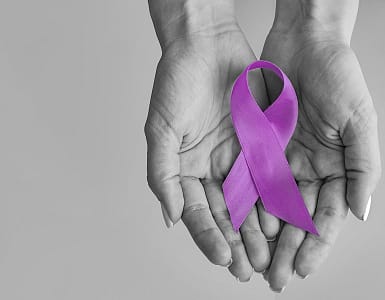The menopause is surrounded in misinformation, perhaps more so than any other biological life event
Until very recently, even the word “menopause” wasn’t used in everyday talk, instead, this period of a woman’s life was referred to as “the change” and lauded by (mainly male) comedians as something to be made fun of.
But now, with an ever growing number of female celebrities and women of power talking out about the menopause, it’s becoming much less of a taboo subject, thankfully.
With this, comes the need for workplaces and employers to its impact and to foster open discussions and a sense of normality around the menopause.
Education of staff of all levels, ages and genders is key
So here, we’re going to dispel some myths that you might find helpful when creating your policies and training documents.
The menopause happens to women over 50
The average age for a woman to be officially menopausal (when she hasn’t had a period for 12 consecutive months) in the UK is 51. But the symptoms of the years leading up to then, called the perimenopause, can begin when a women is in her early 40s or before. In fact, symptoms can begin at any age and end when a woman is in her 60s.
Reaching the menopause before 40 years old is known as premature menopause and reaching it between the ages of 41 and 45 is classed as early menopause.
The menopause just causes hot flushes
Hot flushes can be uncomfortable, irritating, embarrassing and upsetting, and are a common symptom of the menopause.
However, there are numerous menopause symptoms, both physical and emotional, that can affect anyone going through the menopause. Physical symptoms include night sweats, headaches, weight gain, hair loss and a dry vagina.
Emotional symptoms include mood swings, anxiety, depression, insomnia, feeling tearful, brain fog, an inability to concentrate and focus and a loss of libido.
Symptoms can vary between women, and even individual women can experience different symptoms day to day. It’s important to remember that not all experiences of the menopause are the same and therefore using language like “that’s not what happened to me/my partner” isn’t helpful.
Either way, experiencing the menopause can cause years, sometimes even a decade, of upset and distressing symptoms, that aren’t always possible to just “live with” easily.
The menopause is caused by age
Whilst it’s true that age is a major factor in triggering the menopause, it can also be triggered early by surgery or certain medical conditions. Therefore, it isn’t a “natural” transition for all women if their body has been pushed into menopause.
This is useful to know when deciding what language to use around the menopause, with perhaps less emphasis on it being a “natural” event for all women.
The menopause only affects women
This is a myth with a two-fold problem. Firstly, some trans people may experience symptoms of the menopause. Secondly, the symptoms of the menopause can also affect partners, and therefore some male partners can also struggle.
Everyone knows what to expect from the menopause
Very often, the symptoms of the perimenopause can creep up on a woman, meaning that they’re learning about what happens at the same time as it happening. Often, this coincides with the highest point of a woman’s career, but either way, if she’s working, it can have an upsetting impact on her ability to work.
All the more reason to open the conversation and educate everyone on what to expect.
To find out how Babble Health can help you and/or your organisation, get in touch here















